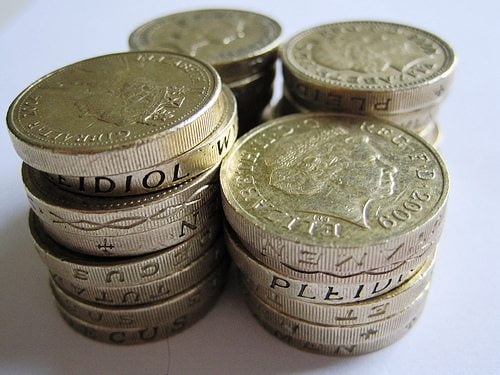

Features
The 2014 budget we want to see
Blue & Green Tomorrow has been writing about chancellor of the exchequer George Osborne’s budgets and economic statements since 2010. We detect a slight change of tone towards environmentalism, post-floods, in Osborne. His budget will demonstrate whether he’s really a shy green and a practical environmentalist, or whether it was all just spin.
We have been ‘in it together’ through austerity Britain, a reduction in the top rate of tax that had brought in revenue equal to the cuts in flood defence spending (£100m)*, and endless tax breaks for oil, gas and shale industries.
We’ve got used to being called the environmental Taliban, cultists, watermelons (green on the outside, red in the centre), theologically-minded, extremists and ‘epic wankers’ by Osborne and his allies.
Most recently we were told to cut the “green crap“ by no less a person than the prime minister, David Cameron, of hug-a-husky fame and leader of the least green government ever. A government that contains an environment secretary who denies the scientific consensus on manmade climate change, but conveniently accepts the scientific consensus of medicine when it comes to his detached retina, thus allowing him to escape the media during a national emergency over flooding.
So this budget is important both fiscally and in setting the direction of travel before the nation votes. It is the penultimate budget before the next general election in May 2015 and the final one before the local and European elections in May this year, and the Scottish independence referendum in September. We expect some targeted cuts and wheezes to shore up Tory and union support.
We would like to see the following tax neutral measures:
– Tax cut (£2 billion): a new green individual savings account (ISA) allowance to allow for tax-free investment in renewables, energy efficiency and cleantech projects
– Tax cut (£1 billion): an increase in the amount allowed to be raised for Seed Enterprise Investment Schemes/Enterprise Investment Schemes in renewables, energy efficiency and cleantech projects in the UK
– Tax cut (£2 billion): corporation tax to be cut further, with greater reductions for companies involved in sustainable enterprise
– Tax cut (£1 billion): creation of zero/low-rate corporation tax for businesses with under £5m turnover which are involved in sustainable enterprise
– Tax cut (£1 billion): creation of tax-free zones for areas of deprivation to encourage inward investment, only for those businesses locating three-quarters of their workforce in those areas
– Tax cut (£10 billion): continued rise in tax-free allowances in income tax for low-income families
– Tax cut (£5 billion): stamp duty zero-rated on affordable housing (up to £250,000) built on brownfield sites or developed above retail units
– Increased spending (£5 billion): greater investment in rail resilience and the network, including re-opening closed lines and accelerating all proposed development plans to take significantly greater numbers of passengers and freight off our roads. Independent analysis of benefit of east-west high speed link between Hull and Liverpool instead of HS2
– Increased spending (£8 billion): matched public sector investment for private sector investment in renewables, energy efficiency and cleantech
– Increased spending (£neg): an additional sum, added to the Wolfson award for delivering multiple “new Garden Cit(ies) which (are) visionary, economically viable, and popular”
– Increased spending (£5 billion): a fund created to accelerate superfast broadband rollout for the most compelling and cost effective solution to reduce the need for moving lots of people around
– Tax rise (£20 billion): a new pollution added tax (PAT) for polluters that cost the taxpayer billions through the health effects of pollution and exacerbate resource shortages
– Tax rise (£5 billion): a windfall tax on large capital financial services to create a new fund for those studying higher courses in science, technology, engineering, mathematics and enterprise
– Tax rise (£15 billion): rather than compulsory purchase of used land, the introduction of a land value tax on brownfield sites and empty properties to offset revenue losses from tax cutting measures, encouraging the land’s development or releasing land banks
The above would create investment for renewables, resource efficiency and cleantech without subsidy, tackle the externalities of resource inefficient business and stimulate university activity around sustainability.
It would also tackle low pay without increasing benefits, and help solve our housing and transport issues, securing freight and passenger rail services and capacity with increasing frequency extreme weather. It would stimulate the entrepreneurial vigour and innovation of the UK.
Roll on March 19 to see none of the above and more of the same.
* We’re fairly confident our brilliant readership understands the impact of inflation on absolute spending
Further reading:
The budget speech we want to see
Myopic budget threatens UK’s long-term prosperity
A sustainable versus unsustainable recovery


 Environment11 months ago
Environment11 months agoAre Polymer Banknotes: an Eco-Friendly Trend or a Groundswell?

 Features10 months ago
Features10 months agoEco-Friendly Cryptocurrencies: Sustainable Investment Choices

 Features11 months ago
Features11 months agoEco-Friendly Crypto Traders Must Find the Right Exchange

 Energy10 months ago
Energy10 months agoThe Growing Role of Solar Panels in Ireland’s Energy Future





























